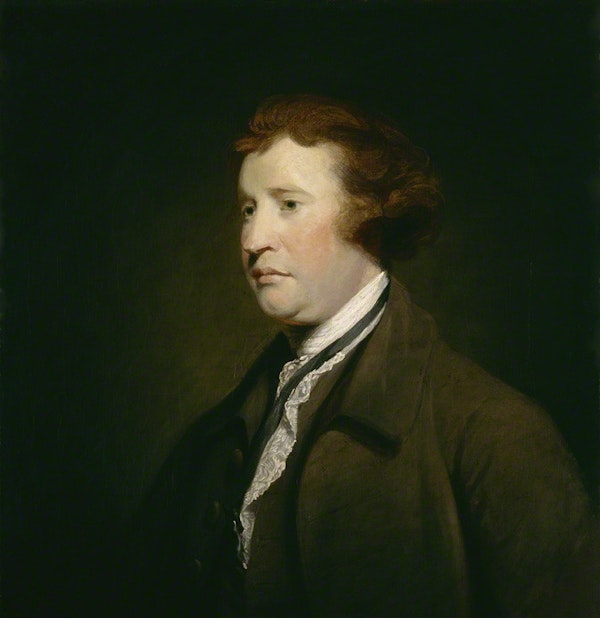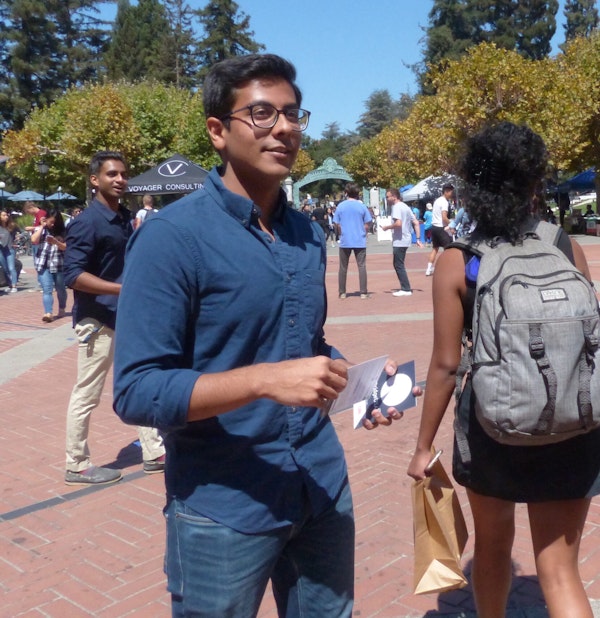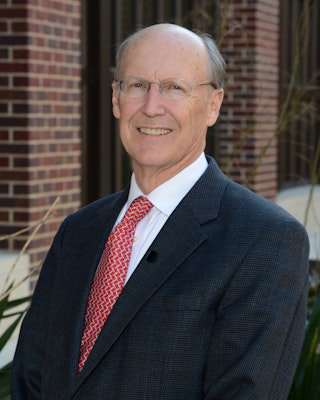Why pluralism keeps America strong
Tolerance allows citizens to disagree peacefully – and peaceful disagreement benefits everyone.
 Portrait of Edmund Burke in 1771. (National Portrait Gallery of London)
Portrait of Edmund Burke in 1771. (National Portrait Gallery of London)
Edmund Burke, often regarded as the father of modern conservatism, argued that individual liberty requires both order and virtue. Without both of these traits, communities and societies can start to fracture. And such fracturing threatens personal freedom, for when chaos reigns, many liberties – such as the right to freely express our beliefs – tend to be sacrificed.
Autocrats prefer imposing order from above, but Burke offered a more democratic approach. Order thrives, he contended, when a society has a reservoir of tolerance that allows competing views to coexist in the public square. Under such arrangements, no one individual or group infringes on the liberty of others, and diverse ideas can thrive. This vision of a tolerant, accepting society stems from Burke’s belief that all people are endowed with the same natural and equal rights.
As Burke put it in his book on the French Revolution, “Men have a right … to do justice, as between their fellows, whether their fellows are in public function or in ordinary occupation. They have a right to the fruits of their industry, and to the means of making their industry fruitful. They have a right to the acquisitions of their parents; to the nourishment and improvement of their offspring; to instruction in life, and consolation in death.”
The late conservative scholar Russell Kirk summed up the philosopher’s view this way: “For Burke … the true natural rights of men are equal justice, security of labor and property, the amenities of civilized institutions, and the benefits of an orderly society.” We Americans would be wise to keep this vision in mind as we consider how to break out of our current bout of polarization.
Creating a pluralistic society
A plurality of interests may sound like chaos to some, but it prevents disorder by facilitating the expression of deeply held views. As The New York Times columnist David French has put it, pluralism allows us to avoid societal breakdown by acknowledging that profound and permanent differences exist among us. It lets us talk about our disagreements rather than fight over them.
The practice of pluralism also does not require anyone to change their minds. In fact, we benefit from our differences and disagreements. As the social psychologist Jonathan Haidt has argued, “People who think differently and are willing to speak up if they disagree with you make you smarter, almost as if they are extensions of your own brain. People who try to silence or intimidate their critics make themselves stupider, almost as if they are shooting darts into their own brain.”
Creating and maintaining a pluralistic society is hard; it means making room for the Left, Right, and Center. And it requires disagreeing respectfully. Such respectful disagreement begins with each of us entering discussions with others as fellow citizens and not treating anyone as inferior. Recognizing our common status allows us to engage in conversations about our differences as equals. We need not try to dominate, rebut, or “own” others. We should, instead, aim to hear them. Hearing the other is essential to acknowledging their intrinsic worth.
Of course, recognizing the value of the other – especially an other with whom we disagree – can be hard. Especially these days, when we too often segregate ourselves into neighborhoods (both literal and metaphorical) of the like-minded. We rush to media that confirm our views and ignore those that don’t. We base our identity on our partisanship. But such choices make it hard to create one out of many, or e pluribus unum.
 Founder of BridgeUSA Manu Meel hands out flyers on the campus of the University of Berkeley in California on Sept. 4, 2017. (Barbara Munker / picture alliance via Getty Images)
Founder of BridgeUSA Manu Meel hands out flyers on the campus of the University of Berkeley in California on Sept. 4, 2017. (Barbara Munker / picture alliance via Getty Images)
Pluralism in practice
The good news is that the free, diverse society that Burke envisioned still exists in the United States and can be glimpsed by observing the various associations practicing pluralism around the country. Most of these associations operate in local communities far from the noise of national politics. They include institutions such as schools, houses of worship, and civic organizations.
Through our Pluralism Challenge series, my Bush Institute colleague Chris Walsh and I have come across many instances of respectful engagement in action. We have seen it practiced in communities like Oklahoma City, where Mayor David Holt credits pluralism with helping his city get big things done. Over the last two decades, Oklahoma City voters have approved funds for major investments in their city. The projects have ranged from a new stadium to mental health services to economic development to a civil rights center. Holt attributes this support for such a diverse array of initiatives to the fact that many voices were included and listened to in the planning process. As he has written, “The mix of projects reflects many different worldviews, and different projects were pleasing to different constituencies.” In the end, he argues, the city “practiced pluralism” when its residents recognized that they do not all think the same way and that none of them will or should try to permanently defeat the other side. That recognition led to compromises that contributed to the common good.
Chris and I have also found pluralism practiced in several rural communities in Texas and Indiana. In each place, administrators, teachers, and students explained to us how they deal with differences. It starts with attending school in a small town, which makes it hard to hide anything. Differences still exist, but as one West Texas administrator told us, her district’s 58-person high school is so tiny that “you can’t ignore your ex-boyfriend walking down the hall.” In other words, students have to learn to live with each other in a civil manner. Sheer proximity breaks down walls.
Shared projects are also important. In Union City, Indiana, students in the combined junior and senior high school told us that Workforce Wednesday, a weekly program that matches high school students with local groups, brings them together to serve their community. One team of students cleans up the city’s park and playground, one works in an animal shelter, one serves in a nursing home. In Milano, Texas, we heard about students serving food to needy families, about the rodeo club caring for a dying student, and about students helping families impacted by a shooting in a nearby community. And in Marfa, Texas, we heard how the annual Marfa Lights celebration brings together students from farming and ranching backgrounds with the many artists who also inhabit the town. In each case, the students told us that everyone needs to pitch in or nothing happens. There can be no football team, cheer squad, marching band, or theater group unless everyone does their part. At an early age, students in such communities learn how to cooperate and function as one despite holding contrasting views.
Eboo Patel, the founder of Interfaith America (an organization that holds events and provides grants, courses, and curricula to organizations and schools that, in its words, “unlock the potential of America’s religious diversity”), contends that such projects are crucial to breaking down differences, and that they don’t just exist in small towns. He points to hospitals as a prime example of places where people of contrasting faiths work side by side for the common good. “People from different religions perform heart surgeries together and say their own prayers as they’re walking into the operating room,” he says.
 Members of different religions attend the 34th Annual Houston Interfaith Thanksgiving Service at the Rothko Chapel in Houston TX on Nov. 15, 2018. (Mark Mulligan / Houston Chronicle via Getty Images)
Members of different religions attend the 34th Annual Houston Interfaith Thanksgiving Service at the Rothko Chapel in Houston TX on Nov. 15, 2018. (Mark Mulligan / Houston Chronicle via Getty Images)
Tolerance for competing religious views is especially important, since it allows believers of any stripe to discuss their differences without resorting to violence. Religious pluralism also counters religious extremism. That’s why the work of groups like the Multi-Faith Neighbors Network is so encouraging. This international organization grew out of a desire among Jewish, Christian, and Muslim clerics to better understand each other’s texts and beliefs. To foster such understanding, the organization sponsors meetings around the world where participants engage with each other in respectful ways. Bob Roberts, a North Texas pastor who is a driving force behind the organization, says that rather than have information about others filtered through “your own tribe or the media,” the group allows participants to hear “directly from the person who holds views different from your own.” That helps break down misperceptions of and contempt for the other and can lead to genuine friendships that cross barriers.
This past Christmas Day, CBS Evening News profiled four pastors in Midland, Texas, who have started getting together to discuss their differences as well as their commonalities. One Sunday last fall, the clerics – a Baptist, a Church of Christ preacher, a Methodist, and a Presbyterian – even exchanged pulpits so that they could speak with believers across denominational lines. As one of the pastors told CBS, people are sick of division. But creating unity, he said, takes having relationships, and those can develop through a common worship service. Or through something as simple as gathering for enchiladas at a Mexican restaurant, as the pastors do.
We should take heart from such examples. They and others we have found – working together to find housing and food for people who need it and protecting spouses from violent partners – show that the pluralism Burke envisioned still survives in many communities across the United States. The work may not be perfect, but it involves citizens and leaders sharing burdens, expressing their differences, listening to one another, and maintaining their beliefs – all without demonizing anyone.
Even as the polarized national debate roars all around us, people across the United States are practicing pluralism in their communities. Through their work, the Burkean ideal of a tolerant, accepting society lives on. May we draw on these examples – and Burke’s wisdom from the past – to deepen our commitment to creating one out of many.
The Catalyst believes that ideas matter. We aim to stimulate debate on the most important issues of the day, featuring a range of arguments that are constructive, high-minded, and share our core values of freedom, opportunity, accountability, and compassion. To that end, we seek out ideas that may challenge us, and the authors’ views presented here are their own; The Catalyst does not endorse any particular policy, politician, or party.

